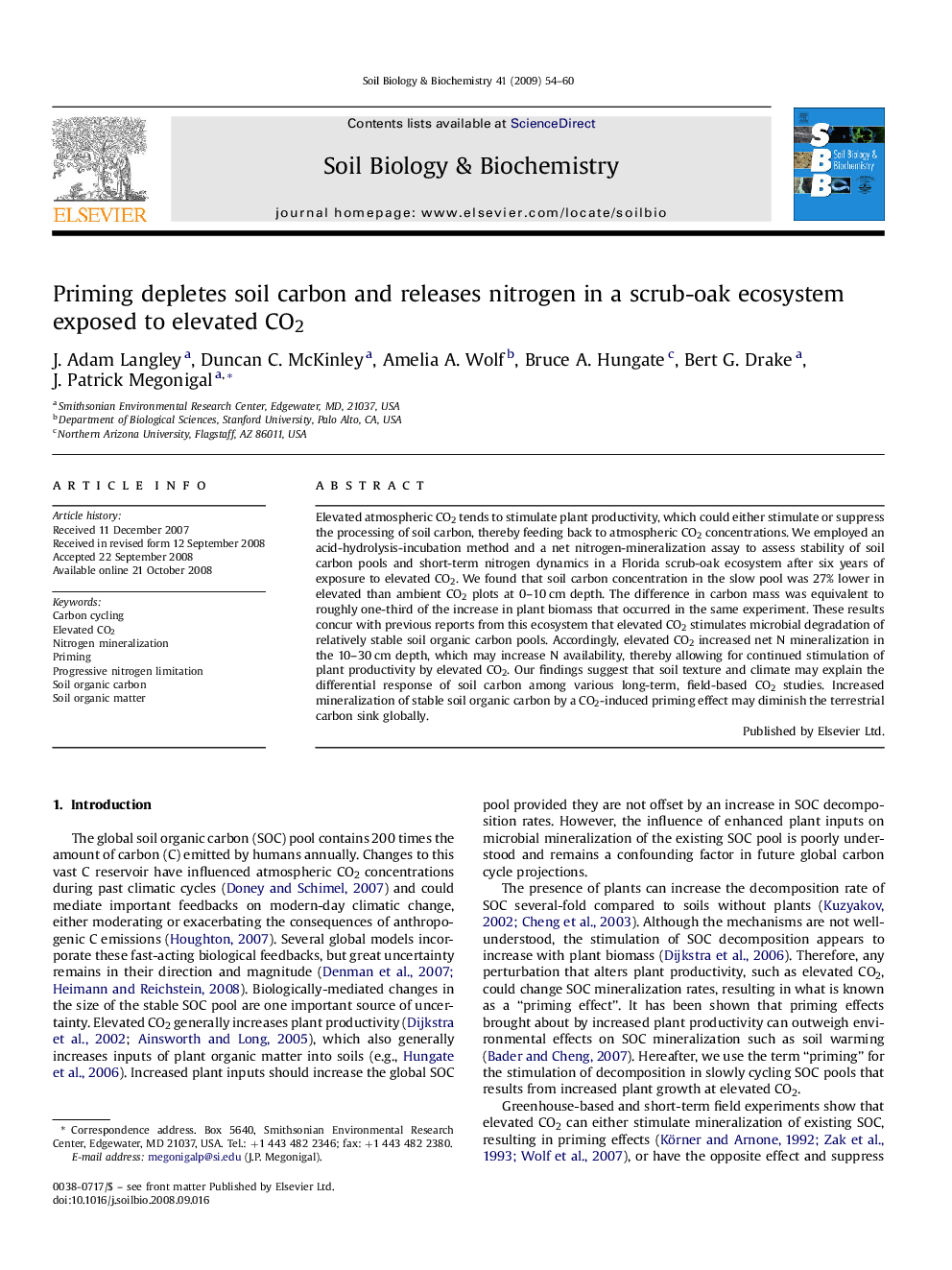| Article ID | Journal | Published Year | Pages | File Type |
|---|---|---|---|---|
| 2026808 | Soil Biology and Biochemistry | 2009 | 7 Pages |
Elevated atmospheric CO2 tends to stimulate plant productivity, which could either stimulate or suppress the processing of soil carbon, thereby feeding back to atmospheric CO2 concentrations. We employed an acid-hydrolysis-incubation method and a net nitrogen-mineralization assay to assess stability of soil carbon pools and short-term nitrogen dynamics in a Florida scrub-oak ecosystem after six years of exposure to elevated CO2. We found that soil carbon concentration in the slow pool was 27% lower in elevated than ambient CO2 plots at 0–10 cm depth. The difference in carbon mass was equivalent to roughly one-third of the increase in plant biomass that occurred in the same experiment. These results concur with previous reports from this ecosystem that elevated CO2 stimulates microbial degradation of relatively stable soil organic carbon pools. Accordingly, elevated CO2 increased net N mineralization in the 10–30 cm depth, which may increase N availability, thereby allowing for continued stimulation of plant productivity by elevated CO2. Our findings suggest that soil texture and climate may explain the differential response of soil carbon among various long-term, field-based CO2 studies. Increased mineralization of stable soil organic carbon by a CO2-induced priming effect may diminish the terrestrial carbon sink globally.
